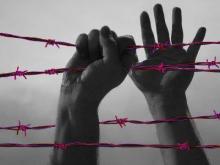December 10, Human Rights Day
Iran Roundtable
Today marks the 20th anniversary of the proclamation of 10 December as Human Rights Day by the United Nations General Assembly (UNGA) in December 1993.On December 10, 1948, UNGA adopted the Universal Declaration of Human Rights, proclaiming its principles as the “common standard of achievement for all peoples and all nations.” Following, UNGA created the mandate of High Commissioner for the promotion and protection of all human rights. The Vienna Declaration and Programme of Action, adopted by the World Conference, marked the beginning of a renewed effort in the protection and promotion of human rights and is regarded as one of the most significant human rights documents of the past quarter century.
Accordingly, states are obliged to protect human rights and prevent violations at a national level, and to stand up when other States fail to live up to their commitments.
"As we commemorate the 20th anniversary of the Vienna Declaration and Programme of Action, let us intensify our efforts to fulfill our collective responsibility to promote and protect the rights and dignity of all people everywhere." UN Secretary-General Ban Ki-moon said in a statement.
65 years following the adoption of the Universal Declaration of Human Rights and 20 years after the establishment of a High Commissioner for Human Rights by the General Assembly, regrettably, we still witness many appalling and large-scale violations of international human rights and humanitarian law around the globe.
Iran, under the reign of the regime of Islamic Republic of Iran for the past 34 years has been repeatedly listed as one of the most violators of human rights by UN human rights bodies, human rights organizations, and more recently by the United Nations Special Rapporteur on the situation of human rights in Iran, Dr. Ahmed Shaheed.
At the heart of the deepening human rights crisis in the Islamic Republic of Iran is its disregard for the pre-eminence of rights and standards promulgated by treaties to which it is a party. Its culturally relativistic positions on human rights result in broad restrictions on fundamental rights and limit who can enjoy those rights on the basis of gender, ethnicity, ideology, political opinion, religion or culture whereby it;
- Continues to deny its citizens basic and fundamental human rights as prescribed by the Universal Declaration of Human Rights.
- Applies capital punishment more than any other country in the world per capita. The regime’s recent embark on a campaign of executing Kurdish, Baluchi and Ahwazi-Arab political prisoners are of particular concern.
- Systematically discriminates against women and people belonging to religious minorities and marginalized nationalities.
- Refuses to cooperate with international human rights bodies to ease international community’s concerns on worsening human rights conditions in Iran
The regime of Islamic Republic of Iran’s constitution calls for equal rights among races, ethnic groups (article 19). It calls for gender equality (article 20), and protection of the rights of women (article 21); freedom of expression (article 23); freedom of press and communication (article 24) and freedom of association (article 27). However, all laws and regulations must conform to the principles of the strict interpretation of official sect of Shiite Islam. Nonetheless, on December 10, the Day of Human Rights, Iran Roundtable calls upon the Islamic Republic of Iran to:
- Release all political prisoners and prisoners of conscience, human rights defenders, religious leaders and dissenters, journalists and bloggers and labour rights and student activists;
- Declare a moratorium on all executions; ban public executions, including stoning; and limit capital punishment to offences considered to be serious crimes under international law;
- Engage with the United Nations in capacity-building to address core human rights challenges, including issues relating to gender inequality, and accede to the Convention on the Elimination of All Forms of Discrimination against Women and the protocols thereto;
- Provide access to the country mandate holder and to thematic rapporteurs, Dr. Ahmed Shaeed, the United Nations Special Rapporteur on the situation of human rights in Iran.
While welcoming the UNGA’s recent adoption of a resolution condemning Iran’s human rights record, for the 10th year in a row, the United Nations, the European Union, the United States and the greater international community must:
- Hold accountable the leaders of the Islamic Republic of Iran for the atrocities and gross human rights violations committed against the Iranian people.
- Continue sanctions on Iran’s human rights abusers and support the fundamental rights of all Iranians.
- Renew the mandate of Ahmad Shaheed, the U.N. special rapporteur on human rights in Iran at the UN Human Rights Council session in March.
- Call for fair, free and transparent elections in Iran without any vetting impediments and on the basis of ‘one citizen, one vote’ with international observers.
- Continue to call for the release of all the prisoners of consciousness currently jailed in the notorious prisons of the regime of Islamic Republic of Iran.

